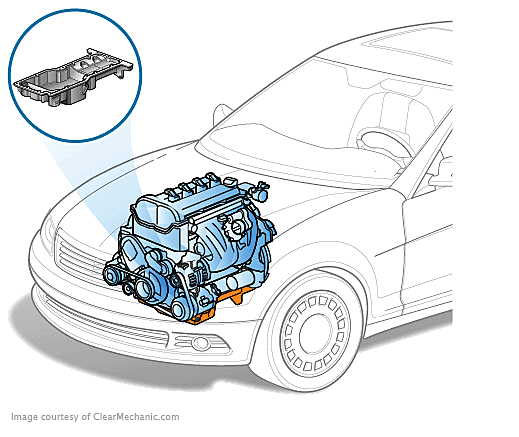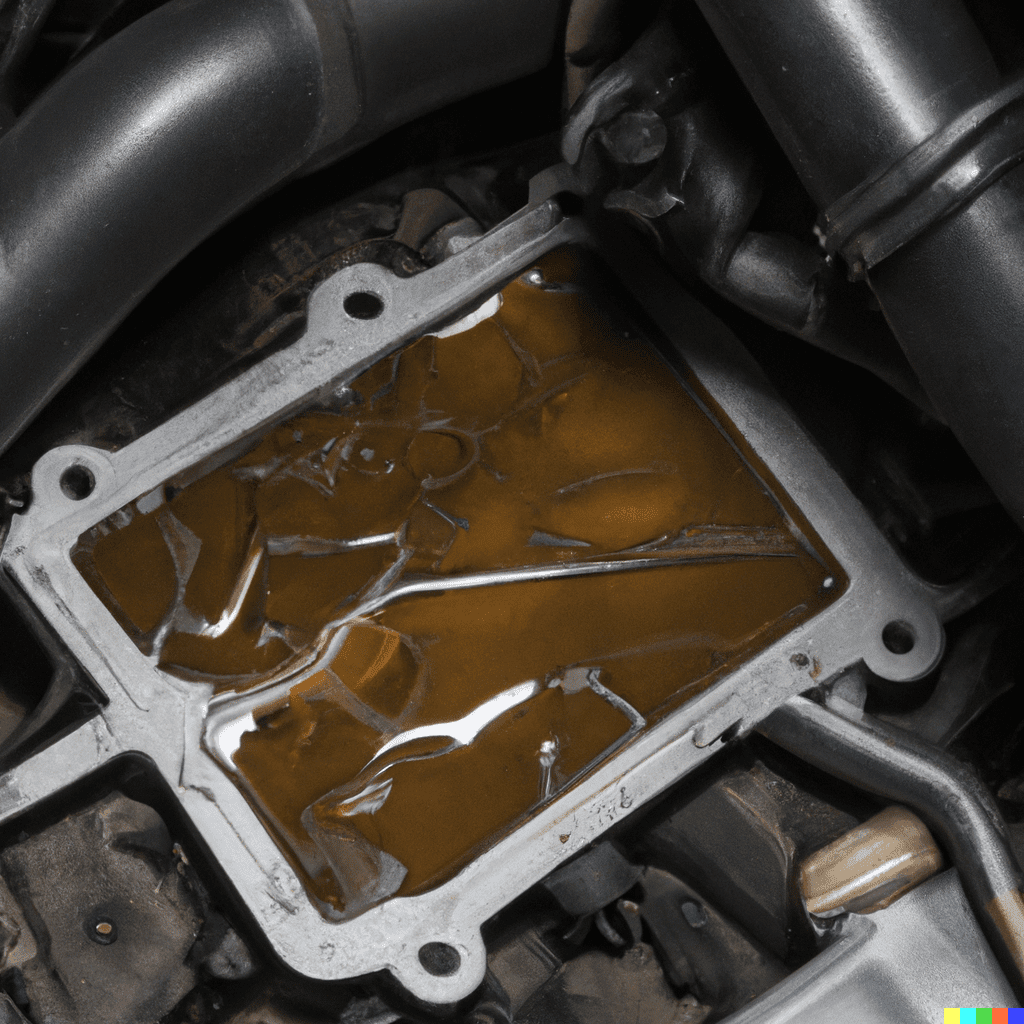What is it?
The oil pan is a large, shallow metal container that is located at the bottom of your vehicle’s engine. Its primary function is to hold and store a supply of oil, which is used to lubricate and cool the engine’s moving parts. The oil pan also acts as a drainage system, allowing excess oil to drain back into the pan after it has circulated through the engine.

What is the average cost to replace an oil pan?
The cost of replacing an oil pan can vary depending on factors such as the make and model of your vehicle, as well as where you take it for repairs. On average, the total cost can range from $400 to $1000, with parts typically costing between $100 and $400. The time it takes to replace the oil pan can also vary, with an average range of 1.5 to 4 hours. It’s important to note that if your oil pan needs to be replaced, other parts such as the oil plug and gaskets may also need to be replaced. Additionally, new engine oil will be required, with costs ranging from $60 to $180 depending on the brand and type of oil and the year, make, and model of your vehicle. To ensure that your vehicle’s oil pan lasts as long as possible, it’s important to follow the recommended maintenance schedule and use high-quality oil from reputable sources.
How often does it need to be replaced?
The frequency of oil pan replacements will depend on a variety of factors, including the age and condition of your vehicle, your driving habits, and the quality of the oil you use. In general, an oil pan should last for the lifetime of your vehicle if it is properly maintained. However, it is not uncommon for oil pans to become damaged or worn out over time due to normal wear and tear, road debris, or other factors. If you are experiencing any issues with your oil pan, it is important to have it checked out and replaced if necessary to avoid further damage.
Symptoms of Bad Oil Pan
• Low oil level or oil pressure warning light illuminated on the dashboard
• Oil leak or puddle under the vehicle
• Grinding or knocking noises coming from the engine
• Poor engine performance, such as lack of power or hesitation when accelerating
• Overheating engine
Is it Safe to Drive with a Bad Oil Pan?
It is generally not safe to continue driving your vehicle if you are experiencing any of the symptoms listed above. A faulty oil pan can cause a variety of issues, such as low oil level or pressure, oil leaks, and engine damage. If you suspect that your oil pan may be damaged or leaking, it is important to have it checked out and replaced as soon as possible to avoid further damage.

How to avoid premature wear of oil pan?
• Follow the recommended maintenance schedule for your vehicle, including regular oil changes and engine tune-ups
• Use high-quality oil that meets the specifications recommended by the manufacturer of your vehicle
• Avoid using additives or oils that are not recommended by the manufacturer of your vehicle
• Avoid overloading your vehicle or driving it aggressively, as this can put unnecessary strain on the engine and its components
• Protect your oil pan and other engine components from road debris by using a skid plate, if applicable for your vehicle
• Avoid spilling oil or other fluids on the oil pan or surrounding components
Conclusion
Maintaining your vehicle’s oil pan is essential to ensuring that your engine runs smoothly and efficiently. The oil pan is responsible for holding and storing oil, which lubricates and cools the engine’s moving parts. Replacing the oil pan can cost anywhere from $400 to $1000, depending on various factors, and may require additional parts to be replaced as well. It’s important to follow the recommended maintenance schedule for your vehicle, use high-quality oil, and avoid overloading your vehicle or driving it aggressively to avoid premature wear of the oil pan. If you notice any symptoms of a faulty oil pan, such as low oil levels, oil leaks, or engine damage, it’s important to have it checked out and replaced as soon as possible to avoid further damage. With proper care and maintenance, your vehicle’s oil pan can last for the lifetime of your vehicle.
